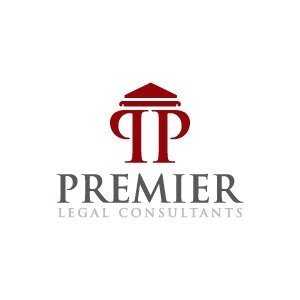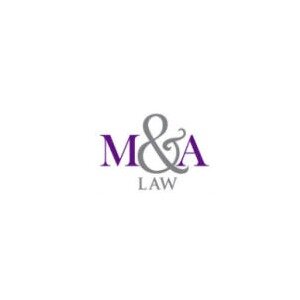Best Education Law Lawyers in Sri Lanka
Share your needs with us, get contacted by law firms.
Free. Takes 2 min.
Or refine your search by selecting a city:
List of the best lawyers in Sri Lanka
About Education Law in Sri Lanka
Education Law in Sri Lanka encompasses a range of legal provisions and regulations that govern the education system, including primary, secondary, and higher education institutions. It addresses issues such as the right to education, educational standards, governance of educational institutions, and the roles and responsibilities of educational authorities. The legal framework aims to ensure fair access to education, maintain quality and standards, and protect the rights of students, educators, and educational institutions.
Why You May Need a Lawyer
There are several scenarios where legal advice can be vital in Education Law in Sri Lanka:
- Discrimination or Rights Violations: Cases where students or staff face unfair treatment or violations of their rights within educational settings.
- Disciplinary Actions: Instances involving unfair discipline, such as suspension or expulsion of students or staff, where legal guidance is essential to ensure due process is observed.
- Institutional Governance: Disputes over the governance of educational institutions, including internal administration conflicts or breaches of governance policies.
- Special Needs Education: Legal assistance might be required to ensure appropriate educational services and accommodations for students with disabilities or special needs.
- Contractual Issues: Legal help might be necessary for disputes related to contracts, including employment contracts or partnerships with educational entities.
Local Laws Overview
Key aspects of Education Law in Sri Lanka that are particularly relevant include:
- Compulsory Education Ordinance: Mandates education for all children of specified age groups and sets out the responsibilities of parents to ensure their children's attendance.
- National Education Commission Act: Establishes the National Education Commission, which oversees policies and reforms in the education sector.
- University Act: Governs the administration and coordination of Sri Lanka's university system, with emphasis on governance and academic standards.
- Child Protection Laws: Legal frameworks that protect children in educational settings from abuse, neglect, and exploitation.
- Inclusive Education Policies: Policies and laws ensuring that students with disabilities receive equal educational opportunities.
Frequently Asked Questions
What is the process for dealing with a dispute in an educational institution?
Disputes are usually addressed through the institution's internal grievance mechanisms first. If unresolved, legal action or mediation may be required.
How can one ensure that a child with special educational needs gets adequate support?
It is important to refer to the institution's policies on special educational needs and consult with legal experts to ensure compliance with inclusive education policies.
Are there legal provisions for educational qualifications obtained abroad?
Yes, qualifications obtained abroad may be recognized by the relevant regulatory bodies in Sri Lanka, subject to specific requirements.
What legal rights do students have if they face discrimination in school?
Students have the right to fair treatment and can seek redress through institutional channels, and if necessary, through legal proceedings.
How are educational institutions regulated in Sri Lanka?
Governance is through various acts and regulations meant to uphold standards and accountability in education delivery and management.
Can a school legally expel a student? Under what circumstances?
Expulsion should follow due process, and be based on valid reasons as per the institution's code of conduct, with the possibility for appeal.
How does the law address the governance of private educational institutions?
Private institutions are subject to specific regulations guiding their operations, including registration, curriculum standards, and quality assurance.
What legal protections are available for teachers facing unfair dismissal?
Teachers can dispute unfair dismissals through labor law provisions and, if necessary, seek legal remedies in employment disputes.
Does the law require schools to accommodate students from different ethnic or religious backgrounds?
Yes, anti-discrimination laws mandate that schools cater to diverse student demographics fairly and equitably.
What are the legal responsibilities of parents under Education Law in Sri Lanka?
Parents are responsible for ensuring their child's attendance up to the age stipulated by law, and for supporting their educational progress.
Additional Resources
For those seeking more information or assistance, consider reaching out to the following:
- Ministry of Education: Provides policy information and resources related to the education sector in Sri Lanka.
- National Education Commission: Offers detailed guidance on policy, reforms, and education standards.
- Human Rights Commission of Sri Lanka: Addresses rights violations in educational contexts.
- Legal Aid Commission of Sri Lanka: Provides legal support and advice for those unable to afford private legal services.
Next Steps
If you believe you need legal assistance in Education Law, consider the following steps:
- Identify the specifics of your legal issue and gather any relevant documentation.
- Consult with a qualified legal professional who specializes in Education Law in Sri Lanka.
- Explore the possibility of mediation or amicable resolution through institutional channels if applicable.
- Consider contacting relevant government bodies or legal aid services for additional support.
- Proceed with legal action if necessary, ensuring that you understand all potential outcomes and legal processes involved.
Lawzana helps you find the best lawyers and law firms in Sri Lanka through a curated and pre-screened list of qualified legal professionals. Our platform offers rankings and detailed profiles of attorneys and law firms, allowing you to compare based on practice areas, including Education Law, experience, and client feedback.
Each profile includes a description of the firm's areas of practice, client reviews, team members and partners, year of establishment, spoken languages, office locations, contact information, social media presence, and any published articles or resources. Most firms on our platform speak English and are experienced in both local and international legal matters.
Get a quote from top-rated law firms in Sri Lanka — quickly, securely, and without unnecessary hassle.
Disclaimer:
The information provided on this page is for general informational purposes only and does not constitute legal advice. While we strive to ensure the accuracy and relevance of the content, legal information may change over time, and interpretations of the law can vary. You should always consult with a qualified legal professional for advice specific to your situation.
We disclaim all liability for actions taken or not taken based on the content of this page. If you believe any information is incorrect or outdated, please contact us, and we will review and update it where appropriate.
Browse education law law firms by city in Sri Lanka
Refine your search by selecting a city.

















